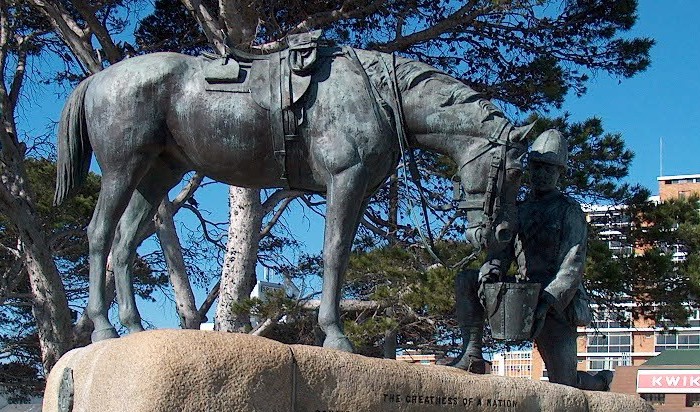Topic: British Army

The Military Horse (1855)
Troop horses are not altogether teetotallers. They find a wineglass of spirits in half a pint of water a very refreshing cordial. They are very fond of sweets also.
From: Field Service; The Sydney Morning Herald, Sydney, Australia, 11 May 1855
(From the Household Words)
When carrying a non-commissioned officer, the weight of the man and his appointments is reckoned at two hundred and forty pounds. This is less than for a heavy dragoon-horse; which, on ordinary occasions, carried two hundred and sixty-three pounds, exclusive of six pounds ration for the man, and twenty pounds ration for the beast. Troop horses are not altogether teetotallers. They find a wineglass of spirits in half a pint of water a very refreshing cordial. They are very fond of sweets also. In the Peninsular war, they throve remarkably well on a daily ration of eight pounds of sugar and seven pounds of hay, with no corn. When their drinking water is hard, a knob of clay mixed with it softens it.
Six horses with a nine-pounder can march four miles in one hour and a half, or sixteen miles in ten hours, allowing for periodical rests. The trot is put at the rate of seven miles, and the gallop at eleven miles an hour.
Captain Lefroy gives, in his hand Book for Field Service, some good rules for choosing a military horse, followed by useful chapters on the diseases to which he is subject, and rules of age. The latter beginning with, "As a horse never dies of old age," sounds like a cruel doom; but it is true that he generally dies by the hand of the executioner, either in the battle-field or in the knacker's yard. The formidable list of equine infirmities will remind the reader of the practical knowledge Shakespeare displays in his description of the steed rode by that mad wag, Petruchio:—"His horse hipped with am old motley saddle, the stirrups of no kindred: besides possessed with the glanders, and like to mose in the clime; troubled with the lampass, infected with the fashions, full of windgalls, sped with spavins, raled with the yellows, past cure of the fives, stark spoiled with the staggers, begnawn with the bots; swayed in the back, and shoulder-shotten."
Inferior horses are useful in the baggage-train; for which mules and oxen are also found useful; the latter, especially, for heavy draught in a rugged country. The ox is welcome for a more substantial reason, as he yields, when the time comes to cut him up, three hundred and seventy-five to five hundred rations of beef of one pound and a quarter to each man; while a sheep furnishes only forty to fifty rations. Although the camel, in a sandy soil, goes only two miles an hour, he will keep it up for twenty hours, and carry six to ten hundred-weight. Camels are important assistants in Indian warfare, and they have been found of great use in the Crimea. Cattle employed for the conveyance of baggage are technically called bat (sounded "baw") animals, just as officers' servants are styled "baw" men.

